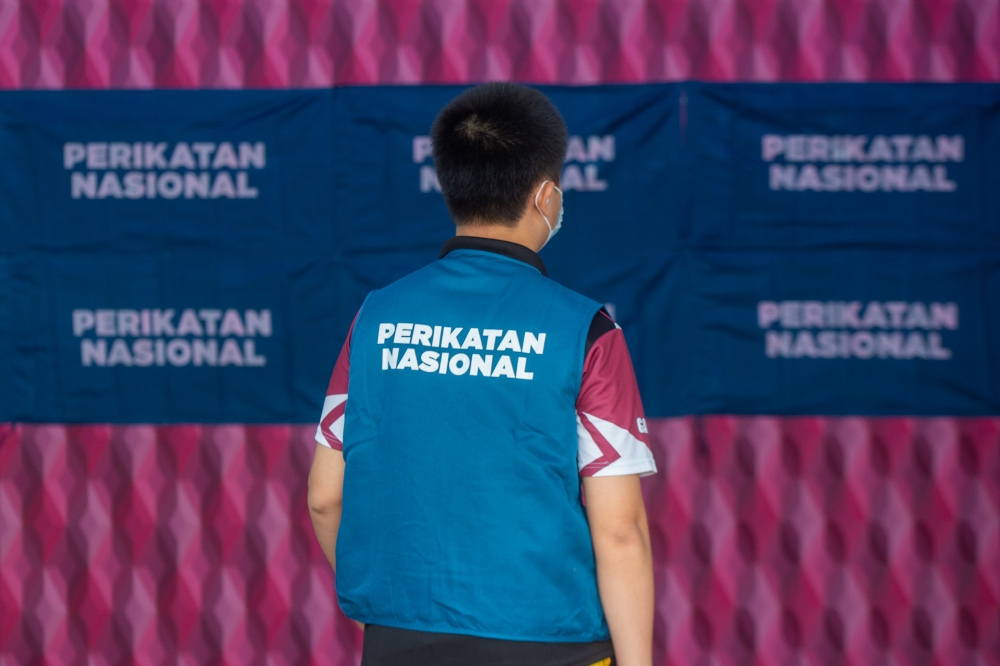OCTOBER 11 — First of all, if you guys thought that this would be some kind of poem of literary work, I’m sorry that this is not any kind of those.
This is of course, as the header suggests, about the issue that interests me and my fellow friends in medical undergraduate programme especially; the proposal to set a higher minimum band of Malaysian University English Test (MUET) for intake and graduation.
Point 95 from Measure 8 in the 2015 Budget from Najib Razak's Facebook page
Based on the full text of The 2015 Budget, under Measure 8: Enhancing Graduate Employability, Point No. 95; starting 2015, the minimum MUET band for IPTA medical and law programmes admission is 4 while that for graduation is 5.
While I might be quite critical later on the proposal, I do not deny the importance of English and its usage in professional communication in many fields. Everyone has to admit that the medium of science and technology as well as business and many other professional fields is English; the lingua franca of the time. Well, I don’t think I have to explain further how important English is for medicine, specifically.
The thing on whether we should reconsider PPSMI should be of separate discussions as it relates to other issues such as primary education quality, national language capability and whatnot.
As long as we get the idea of the importance of English, yes, the point is hit.
As it is still on proposal level and the debate is still ongoing in the House, up until now we are not ascertained yet whether it is going to be effective on the current batches of undergraduate students or it will only be effective on the batches starting the 2015 intake onwards.
One way or another, the issue will still be there; how well prepared MOE is to cater the new requirement? All of us know that it is rare for annual Budget to not be approved. One might say I’m trying to be blindly speculative.
Well let’s bring a case to ponder; in USIM for example, for medical programme admission, the minimum band currently set for admission is 3 while the graduating band is 4. For undergraduate admission for medicine, not more than 20 per cent actually achieved more than 3.
But it’s still okay for medical programme as the drive and environment to learn and practise the language is there; we are ought to use it even outside of our lecture halls, say when we bump into our lecturers, not mention numerous case presentations to medical specialists that would make us master the communication skills in no time before we even realise it.
Aside from medical, dental and law programmes, USIM is one of the public universities that set a minimum band for MUET (Band 3) in order to qualify for graduation.
In case the people are uninformed of this, the minimal SPM requirement for admission to any programme in USIM resulted in USIM having most of the students coming from religious school. Not trying to be provocative here, but Islamic religious schools, although some of them being prestigious and High-performing School (SBT), do not really offer an English-friendly environment, leaving the students merely mastering the English paper and the fate of communication skills of students onto their own.
People reading this might think that USIM students are spoilt brat for complaining on the minimal MUET band requirement set by USIM, but the reality is that every year, the issue plays on loop; there is a good number of undergraduates not able to graduate due to failure to obtain Band 3.
Don’t get me wrong, I celebrate USIM’s and other universties’ initiatives as well as the proposed point 95 in the 2015 Budget to set a higher minimum band as this would at least make the students, teachers and lecturers treat English more seriously. And if it’s going to be effective on my batch, I’ll keep myself positive about this and take enhancing my English a challenge, I would say.
But the thing is that, what would MOE do in turn in order to provide the students to meet the requirements?
In USIM, again, for example, the Centre for Core Studies do provide Language Support Programme (LSP); for English, it’s ELSP. ELSPs are series of support programmes that are aimed to provide additional room and space for more English lessons and it is hoped that by the end of the programme, the language empowerment would be enhanced hence helping them to meet the graduating requirement.
What happens every year is that the ELSPs done are merely the same as book-based lessons; the only difference is that it is done during semester breaks.
Another thing to consider is that how, after at least 11 years of learning English from primary schools until SPM and witnessing many students achieving A in English, we do not see satisfactory reflection in communication skills.
The question that hence would be asked is will we see major difference in quality of English when one can obtain his desired grade by inherited “techniques” and “templates”?
At individual levels, if it’s going to be effective to my friends and I or just the upcoming juniors, I would say “bring it on.”
The thing is that, when we are too obsessed with measuring achievements quantitatively, it is possible for ourselves to play tricks and not actually achieve the aim intended, like what happened to our per capita income, for example.
Last but not least, we really hope that MOE will come up with proper strategic plans in order to make the minimum requirement applicable and pratical, not just implementing shortcuts.
After all, we want the students to both empower the desired communication skills and graduate hence serving the nation.
* Wan Salman Wan Sallam is a medical student of Islamic Science University of Malaysia (USIM)
** This is the personal opinion of the writer or publication and does not necessarily represent the views of Malay Mail Online.





















